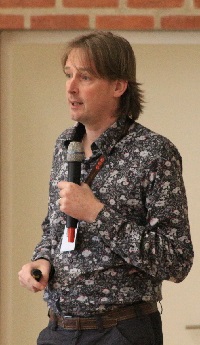FAIR data management and stewardship - Data interoperability for discovery
Dr Richard Finkers (Wageningen UR, Dutch Techcentre for Lifesciences and ELIXIR–NL) was invited by the Feed-a-Gene project to present the concepts of FAIR data management during the Feed-a-Gene annual meeting on 26 April 2016. The following text summarizes Dr Finkers’ presentation.

The life cycle of scientific data comprises creation, processing, analysis, preservation, access and re-use, but the cycle often stops after publication. The lack of long-term data management results in significant data loss, a problem made more acute by the tremendous growth in scientific data production, and discoveries are impeded because data are never published or stored in non-interoperable systems. For those reasons, funders, publishers and research institutes are now requiring data management and stewardship plans. The EU will invest 2 billion € in the European Open Science Cloud, whereas states and the private sector are expected to invest an additional 4.7 billion € in this project.
The goals of data management are multiple. While funders and institutions want to extract the maximum value from research investments, researchers can benefit directly from good data management. For instance, a researcher interested in genotype-phenotype relations between Alzheimer’s Disease and Huntington’s Disease will be able to combine datasets from various sources in an efficient, time-saving fashion. However, while some scientific communities have been successful in creating data repositories, many researchers are struggling with the new demands. In January 2014, a group of stakeholders defined the FAIR Data principles:
- Findable: (meta)data is uniquely and persistently identifiable. Should have basic machine readable descriptive metadata.
- Accessible: data is reachable and accessible by humans and machines using standard formats and protocols.
- Interoperable: (meta)data is machine readable and annotated with resolvable vocabularies/ontologies.
- Reusable: (meta)data is sufficiently well-described to allow (semi)automated integration with other compatible data sources.
This minimal set of guiding principles and practices should allow data providers and data consumers - both machine and human – to more easily discover, access, interoperate, and re-use the vast amounts of information being generated by contemporary science.